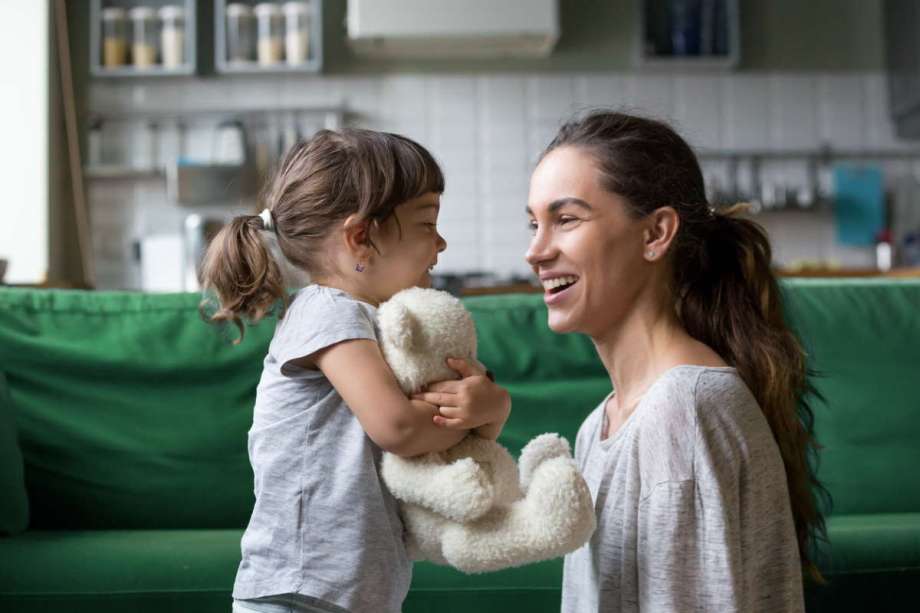How to Evolve Behavior with Love

So often when racking our brains for solutions to challenging behaviors, adults lean on fear as their best friend to help them through the madness and frustration. In the field of behavior many strategies may hurt a child’s emotional wellness, and result in shame, guilt and sadness. Adults scour parenting books and the internet for help.
Parents usually land on traditional behavior strategies that involve ignoring the behavior, giving rewards such as stickers and toys for good behavior, and figure out just the thing to take away to really make them learn a lesson. The problem with the strategies steeped in fear is that they don’t work. And if they do, at what cost?
More: 10 Positive Parenting Phrases to Use With Toddlers
Parents, teachers and other adults don’t know what they don’t know. They, most likely, are doing what they believe is best and fastest. They lean on what was done to them as children and follow the same plan. After all, they turned out just fine. Trust that there is another way!
It is time to redraw the map. Find the X. Mark the spot. Love is the treasure. Throw out strategies and tools based in fear until strategies based in love are all that is left. How can love engulf behavior even when the behavior is so hard?
Here are three proactive and clear ways to make sure those new strategies in your toolbox are cemented in love:
Don’t have time to finish reading now? Pin it for later:
Skills and Needs
98% of the time a challenging behavior is a lack of skill or an unmet need. So, our job as parents and teachers is to teach a skill and meet a need. Then we have to use our two best friends of time and patience. The best way is not always the fastest. Teaching a child to read can take upwards of eight years. Teaching a child to manage their emotions can take a lifetime. Celebrate each tick or interval along the learning continuum.
Don’t Hoard the Power
Relationships should be based on give and take. Power should be shared. Adults are bigger, and with size, comes power. But if you are an adult that hoards power, children will be programmed to fight. Children five years old and older (through adulthood) follow through on a directive 90% of the time. The 10% that hangs in the balance is crucial for a healthy relationship.
Making age appropriate decisions, having language to get our thoughts and ideas across, being able to listen to another’s request, and letting go of the fear that all hell will break loose if I share power and control will show our children that there is room in our homes, in their classroom, and on this earth for both voices.
Thought Cartwheels
Flexibility of thought is the glass cleaner that shines the foggy fear away from the windowpane. When we are rigid and only think inside the box, children tend to jump out. Either for safety or the need for power, we throw those children back inside that unwavering box. And they tend to jump back out.
Build a new, individual box for children that answers the question, “Who is this child?” Think about why ignoring behavior is an age-old strategy that doesn’t work. Stop giving so much power to stickers and the charts they find themselves stuck to. Pack up behavior modification systems that reek of shame, guilt, and disempowerment and send them on a first-class ride to Timbuktu.
Filling your toolbox with strategies based in love will set a path for children to grow, learn, and strengthen emotional wellness. Cut the fear weeds and walk hand in hand on the path of love. It is always worth it!
For more positive parenting advice, check out A Parent's Guide To Conscious Discipline.
Megg Thompson, a former teacher of ten years, is a Certified Behavioral Consultant and Certified Life Coach working with children, adults and families. Megg is also the founder and filler of The eMpTy Toolbox. She spends her days in both public and private schools, childcare centers, preschools and in homes helping children of all ages be at their best. Megg lives on the beach in Hampton, NH with her husband, son and “will always be a puppy” chocolate lab.